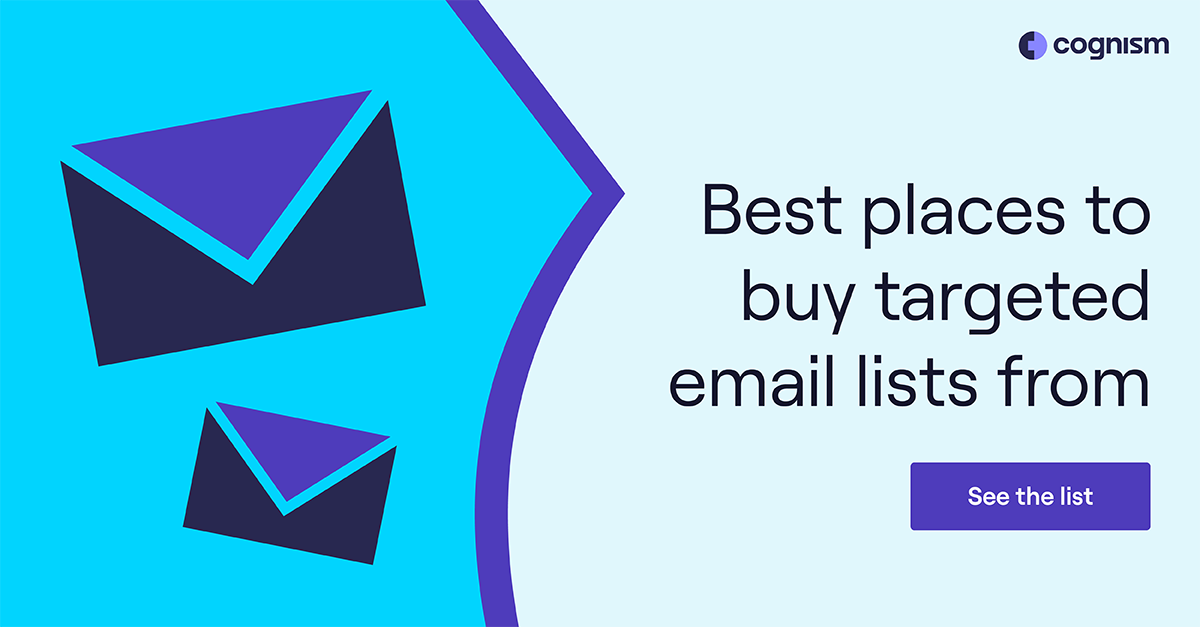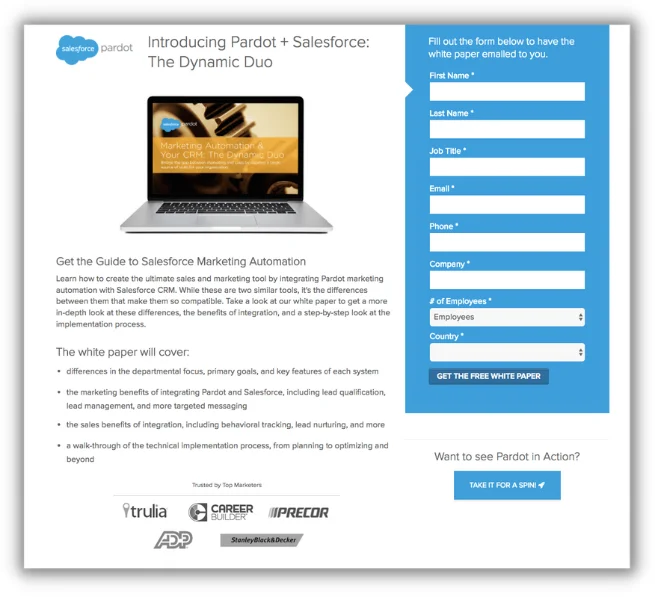New Suggestions For Choosing An Email List Website
What Factors Should I Be Thinking About When Buying A Hematologist's Email List?Take note of these essential factors when buying a hematologist's email list. It is important to make sure that your list is accurate, efficient. legal, and relevant for your marketing goals. The most important considerations are: 1. Data quality and accuracy
Source of Information: Confirm that email list providers use reliable sources. For instance, verify that they use professional directories (such as medical databases) or authentic opt ins from hematologists. The credibility of a list is determined by the accuracy with which contacts were collected.
Updates and verification: Find out how the provider verifies the accuracy of data. Validate emails to remove invalid or inactive addresses. The list should be updated frequently to ensure accuracy as healthcare professionals may change institutions or positions.
Segmentation by Specialization The list should be specific to Hematologists. If you are able, break the list further, such as by location, subspecialty, years of practice, or an affiliation with a hospital. A well-segregated list helps you better target your outreach.
2. Legal Regulations
Data Privacy Laws : Ensure your list is compliant with all applicable laws on data privacy including the California Consumer Privacy Act, General Data Protection Regulation, in Europe or the General Data Protection Regulation, in the U.S. It is a requirement that email addresses are collected only with consent.
CAN-SPAM Act: In the U.S., ensure the list is compliant with the CAN-SPAM Act, which governs commercial emails. Infractions could result in penalties and your emails may be flagged for spam.
Consent to Opt In The list should comprise only hematologists with a clear opt-in to receive emails from third parties. Sending unwelcome emails to those who have not consented could result in unsatisfactory engagement or legal issues.
3. Provider Reputation
Examine the credibility of the provider. Review, testimonials and cases studies can help you figure out whether the firm has a good reputation. A well-established provider with a solid track record will be more likely to deliver quality, reliable data.
Transparency - Select a data provider that is transparent regards to where the data originated from and how it was collected. Providers that are vague or in the dark about their data collection methods must be avoided.
Customer Support: Selecting an organization with excellent customer service is vital. You may need assistance with technical issues, checklist customisation, or concerns about compliance. A solid support can make a difference.
4. Return on investment (ROI) and cost
Pricing Models: Consider the pricing models available and consider whether they are flat rate, pay-per-contact, or subscription. Pricing should be based on the potential ROI, in addition to balancing the overall quality and quantity of your options with the budget for your marketing.
Refund or Replacement Policy: A reputable company will offer a replacement or refund policy for invalid email addresses. Be sure to read the terms of this policy prior to making a purchase.
Value for Money Comparison of features like segmentation options and data accuracy warranties together with the price. If the data quality of the list is poor then the most affordable list may not be the best option.
5. Use and ownership of data
Multiple Use: Understand the rules of use applicable to the email list. Multiple Use: Be sure to understand the conditions that apply to making use of the list of email addresses. Some service providers will only allow you to use the list only for one email campaign, while others may offer full ownership with unlimited rights to use.
Exclusive vs. Shared Lists. Check if an email list is solely yours or is shared by other buyers. Exclusive lists usually result in higher engagement rates because contacts are less prone to receive marketing emails from other sources.
6. Data Integration and Format
Integration with CRM and Email tools: Check if the list is easily integrated into your CRM systems or marketing tools for email. For easy integration, the list should be in a common format, such as CSV or Excel.
Easy of Use: Evaluate the ease with which it is to filter and manage your list. Lists that are difficult to segment or manage can reduce the effectiveness of your campaign.
7. Ethical concerns
Relevance of your email outreach to Hematologists. Be sure that your email outreach is relevant to Hematologists. If you send content to hematologists that is not in line with their expertise could cause poor engagement and will affect your reputation as a brand.
Avoiding Spam Tips: Take care not to overwhelm recipients with too many emails. Sending spam complaints could damage your reputation if you send out too many emails.
Also, you can read our conclusion.
The purchase of a list of hematologists is an effective tool for targeted marketing. But it should be done with care. Consider the data accuracy and reputation of the company, and their compliance with privacy legislation to ensure you get a quality list. By prioritizing the segmentation process, legal compliance, and ethical marketing you'll be able to improve your return on investment while maintaining the trustworthiness of your brand through your outreach initiatives. Check out the pro hematologists email list for blog info.

The Top 10 Things You Should Consider When Purchasing An Oil And The Gas Industry's Email List
Take note of these points when purchasing an oil or gas email list to make sure that the list you purchase is of top quality, targeted and legal. Here are the top ten things to think about:
1. Relevance for target audiences
Industry Focus: Make sure the list is targeted at the industry of oil and gas. A well-defined list should contain professionals such as engineers and geologists, as well as operators managers, and decision makers in midstream, upstream and downstream operations.
Roles and Job Titles - Look for a list of the most influential people in your company (executives/managers, engineers, etc.). within the companies you wish to focus on.
2. Indicate the source and the vendor's reputation
Reputable Providers: Only buy email lists from companies that are reliable, trustworthy and follow best practices when collecting information. Avoid companies with a questionable history, since they could result in poor data quality or legal concerns.
Data Quality - Research reviews and testimonials are used to gauge the credibility and reliability of a list-provider.
3. Accuracy and Freshness of Data
Data Age : The database should be updated with most current contact information. Oil and gas companies go through frequent staff changes. Outdated contacts can result in a high bounce-rate.
Verification Process. Check that the vendor checks and regularly updates its database to get rid of inactive or inaccurate contacts.
4. Conformity to Regulations
Legal Compliance - Ensure the list conforms to all local and international laws such as GDPR, CANSPAM, etc., that govern the processing and storage of personal data. Infractions could lead to sanctions as well as legal risks.
Opt-In Process: Check whether the email addresses listed in the list were collected with consent. In other words, they had opted to be notified.
5. Segmentation and Customization
Custom Segmentation A good list service will provide segments that are determined by certain elements, such as location or job role. It could include the size of the company and sub-sectors of the oil and Gas industry.
Custom Filters: Based on your campaign objectives you can customize the list according to criteria such as geographic area or size of the business, or your particular requirements.
6. Deliverability Rate
High Deliverability Rates: A high-quality email list should have high deliverability rates, typically 95% or more. High bounce rates are common in low-quality lists, and can harm the reputation of your mailer or email marketing efforts.
Testing and Metrics and Testing. You may ask the company to supply you with metrics on deliverability, or previous performance data, in order to assess the success of your list.
7. Volume in comparison to.
Qualitative over Quantitative Lists should not be just vast, but also extremely precise and specific. A smaller, more targeted list will yield better results.
Engagement Metrics: Prioritize the rate of engagement over the number of contacts, since an engaged audience is more likely to react to your advertisements.
8. Pricing and Cost Structure
Transparent Pricing that is transparent. Know the pricing structure of the list, whether you're purchasing it for the first time or on a subscription basis. Be wary of lists that appear to be extremely cheap. They may not be of any merit or value.
Return on Investment: Compare the cost of the list with the conversion rates you expect. Sometimes paying a premium for a highly targeted list is more affordable over the long haul.
9. Privacy and security for information
Data Security: Examine the vendor's data security policies. The list vendor should make sure that personal data is secure from unauthorized access.
Privacy: Make sure that the service provider does not share or sell your personal information, especially when your company requires privacy and discretion.
10. Customer Support and after sales service
Customer Support: The seller must offer ongoing support to customers should they face issues with their list or need assistance with their implementation.
List Replacement Warranty: A reputable provider will either repair or replace the list in case of issues (e.g. inaccurate information or poor delivery).
You can ensure that the email list you buy is efficient and compliant with business goals within the oil and natural gas industry by taking into consideration these aspects. View the most popular oil and gas industry email list for blog advice.
